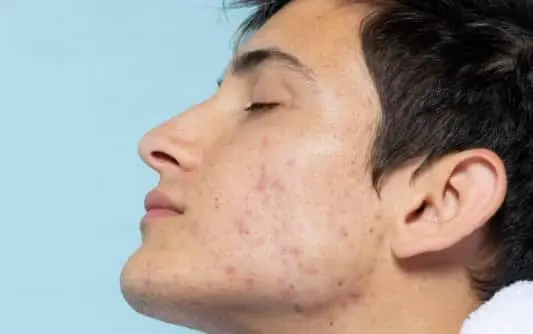There exists numerous misconceptions about acne circulating the internet. Despite hearing various accounts of what causes acne, discerning the truth can be challenging. To provide clarity, we aim to debunk the top 12 myths surrounding acne.
- Only teens experience acne. Acne stands as the most prevalent skin condition, affecting individuals of all races and age groups. Approximately 30% of adults, encompassing both men and women, grapple with acne. While 85% of teens endure some form of acne, it extends beyond this demographic.
- Increased face washing resolves acne. Merely washing your face more frequently won’t alleviate acne. It’s advisable to cleanse your face twice daily; excessive washing may exacerbate the condition. While facial cleansing aids in reducing bacteria, moderation is key.
- Popping pimples is safe. This notion is erroneous. Squeezing pimples elicits inflammatory reactions and can introduce additional bacteria, exacerbating the issue. Moreover, it may lead to persistent acne scars.
- Sun exposure and tanning beds alleviate acne. Despite the perception of drying out the skin, sun exposure does not aid in acne healing. Instead, it can inflame and desiccate the skin, prompting increased oil production and worsening acne.
- Toothpaste eradicates pimples. Toothpaste and household remedies are unsuitable for skin application. Fluorides present in toothpaste may exacerbate acne. Opting for spot treatments containing salicylic acid is a preferable alternative for long-term skin health.
- Pores open and close. Contrary to popular belief, pores lack musculature and cannot expand or contract. Steam can facilitate the loosening of oils trapped in pores, giving the appearance of reduced size once cleared.
- Acne stems from unclean skin. Acne is not attributable to poor hygiene. Regular face washing, twice daily, is sufficient to eliminate surface oils and bacteria.
- Greasy foods trigger acne. Claims associating chocolate, fries, and similar junk foods with acne lack scientific substantiation. There is no empirical evidence linking these foods to acne, allowing for guilt-free indulgence.
- Exfoliation should be frequent. Vigorous scrubbing doesn’t eradicate acne; excessive exfoliation can exacerbate the condition by inflaming the skin.
- Acne exclusively affects oily skin types. Acne can afflict individuals with various skin types. Whiteheads, blackheads, and pimples can manifest across all skin types.
- Makeup induces acne. Makeup can only exacerbate acne when improper products are used. Oil-free, lightweight foundations are unlikely to cause issues, provided they are thoroughly removed at night. Consistently cleansing the face before bedtime is crucial to eliminate makeup and oil buildup.
- Acne resolves on its own, necessitating no treatment. Acne is a chronic condition, persisting over time. It exists beneath the skin’s surface, necessitating continuous management. Seeking appropriate treatment is essential for effective acne control.
Dermatologist in Chatsworth.


